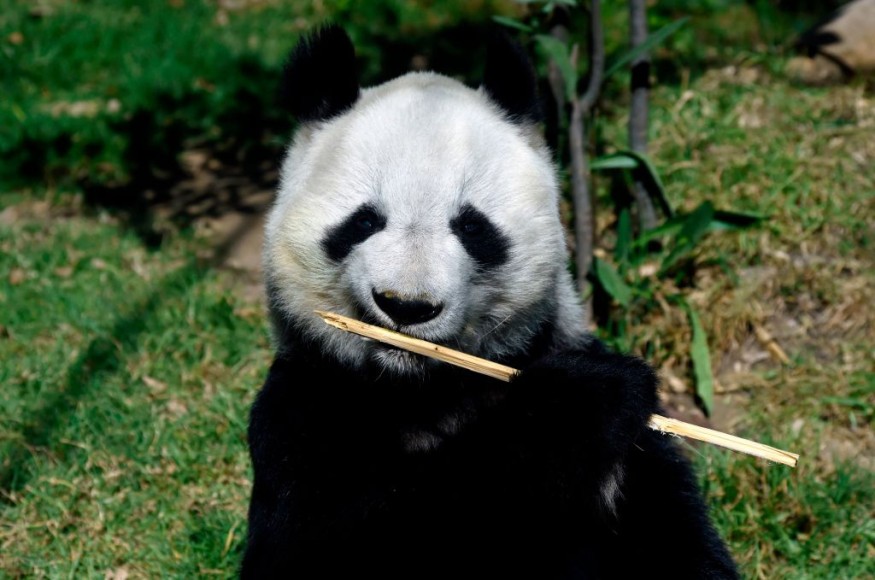Mexico Is Down to Its Last Panda Xin Xin and She May Also Be the Last in Latin America

Xin Xin, born in Mexico, is the last panda in Latin America. She is the only survivor of the giant panda diaspora, a population that China gifted to various foreign countries in the 1970s and 1980s.
According to Associated Press, Chapultepec Zoo in Mexico is one of only two zoos where pandas are not under the direct supervision of the Chinese government.
Given that Xin Xin, the granddaughter of pandas given by the Chinese government, is now 32 years old, past menopause, and childless, it is possible that this era is coming to an end after more than 50 years.
If the Mexican government balks at the price of a replacement panda, the said mammal may be extinct in Latin America. Xin Xin is a descendant of Pe Pe and Ying Ying, who arrived at Mexico City's Chapultepec Zoo in 1975.
China's early "panda diplomacy" was a period when these cute animals were given as gifts to other countries. In 1984, China shifted its strategy from giving out pandas to a policy of high-priced loans.
Mexico May Disagree With China's New Panda Loan Policy
Locally-born panda cubs can only stay in a few countries due to the loan program of China. Mexico is one of the few countries that were able to keep them. Since 1985, the loan program has required zoos to return the cubs to China.
After Shuan Shuan's death, Mexico's government began communicating with China's ambassador. Shuan Shuan was one of the oldest pandas living outside of China. She died at the Chapultepec Zoo on her 35th birthday last July.
China is now lending giant pandas to other countries for conservation efforts at the cost of $1 million yearly for 10 to 15 years. However, the conservative administration of Mexico's President Andres Manuel Lopez Obrador looks unlikely to approve of such a large payment.
Mexico City Zoos and Wildlife Conservation Director Fernando Gual said: "Another arrangement will definitely have to be found, but it will depend a lot on the will and necessities of both countries."
Despite Mexico's strategic importance to China, a researcher at the Monterrey Institute of Technology who has studied panda diplomacy, Carlos Cerda Dueas noted that the administration of Lopez Obrador's preference for austerity may make achieving an agreement "very difficult."
China briefly halted additional panda loans during the COVID-19 outbreak. Still, China President Xi Jinping's administration recently resumed the practice by sending two pandas to Qatar, the host nation for the 2022 World Cup.
The Mexican government has been making efforts to expand China's influence in the region because China is Mexico's second-largest economic partner behind the United States.
U.S. News reported that the Chinese government has been working to expand its influence in Latin America, so the possibility of leaving the region without any pandas could be leverage for Mexico.
Mexico Has Extensive Knowledge of Panda Conservation
Although a giant panda's lifespan in the wild is only about 15 years, they have been known to live up to 38 years in captivity.
The giant panda population has increased from less than 1,000 to more than 1,800 now in both the wild and captivity. Thanks to decades of conservation efforts in the wild and research in captivity.
According to the Congressional Research Service, Mexico's amazing performance makes it one of just two zoos that operate a panda program independent of the Chinese government.
The other pandas are in Taiwan, where they were traded for two endangered sika deer in 2008. There were eight successful panda births in Mexico, and five pandas reached adulthood.
The Chapultepec Zoo's long-term research has yielded a lot of information and genetic data - cryogenically preserved semen and ovarian tissue - which researchers hope will allow them to ensure pandas' survival even after Xin Xin passes away, ABC News reported.
Xin Xin has simple interests such as passing the time by lounging in a hammock and sneakily searching her enclosure for bamboo. One of her favorite treats is red apples, which her trainer sometimes hides for her to discover.
Tohui, her mother, surprised everyone at the zoo on July 1, 1990, when she gave birth to the four-ounce baby Xin Xin away from the camera that recorded her every move.
"It's impossible not to have an attachment to these animals... We saw most of them being born here," Gual noted.
Tohui was the first panda born outside of China to live to adulthood and only the second. The city's pride and happiness are memorialized in a song by Mexican pop star Yuri.
This article is owned by Latin Post.
Written by: Bert Hoover
WATCH: China's Panda Diplomacy, Explained - From Vox
Subscribe to Latin Post!
Sign up for our free newsletter for the Latest coverage!
© 2025 Latin Post. All rights reserved. Do not reproduce without permission.














